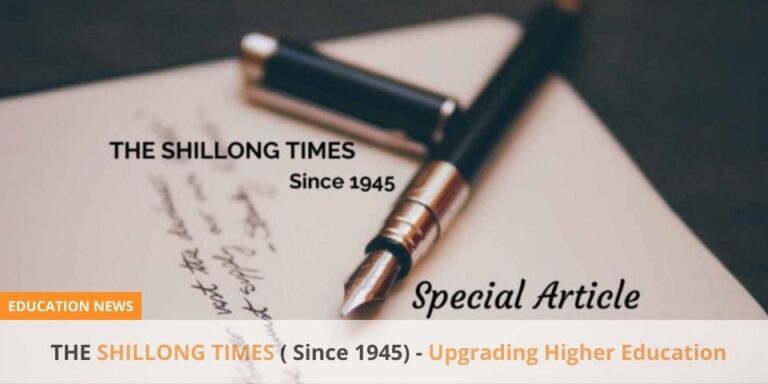
THE SHILLONG Times (Since 1945) - Upgrading Higher Education

The recent decision of the University Grants Commission (UGC) to engage experts and professionals from various fields as professors of practice is a step in the right direction. The objective, as per the draft, is “to develop courses and curriculum to meet the industry and societal needs and enable HEIs (higher education institutions) to work with industry experts on joint research projects and consultancy services which will be mutually beneficial”. This will help universities keep up with the latest industry trends and produce graduates that are more employable.
The initiative’s goal is to bring in experts from a diverse range of fields, such as engineering, science, technology, entrepreneurship, commerce, social sciences media, civil services, public administration, and armed forces. These experts will help develop and design course curricula, deliver lectures, mentor students in innovation and entrepreneurship, focus on industry-academia collaboration, carry out joint research projects, and hold seminars in collaboration with regular faculty members.
Statistics show that the number of universities has grown from approximately 20 in 1950 to over 1,000 currently. However, only 135 of these are considered Institutions of National Importance. Close to 39 million students are enrolled in academic institutions with India’s GER (gross enrolment ratio) at just over 27%. To implement Education 4.0, upgrades in quality are necessary.
Some experts believe that the latest NEP Policy for education visualises a future where education is in perfect sync with the politics of the corporate Hindutva alliance that currently rules India. The policy strongly believes in the privatization of education, which will make it more expensive and out of reach for those who are socioeconomically deprived. This also means that quality education, which the rich and middle class can afford, will not be available to the lower echelons of society.
It would be unfortunate if only the privileged section of society acquires the education needed to fill executive and official positions, while those excluded from such opportunities are left to compete for a limited number of jobs among the vast workforce. In fact, leaders must educate themselves so they can empower the young generation – this is something that is urgently needed.
Latest News
People Reading Now

CBSE Compartment Result 2023 OUT: Click For Direct Link



CSAB 2023: Special Round Registration Begins Today

